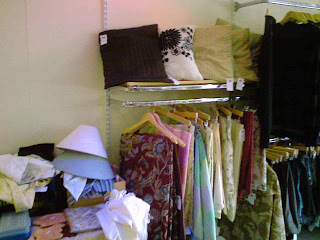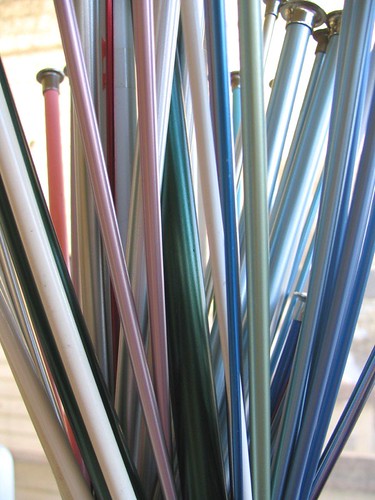 |
| Opening of the Cambridge RSPCA clinic 1936 |
1. Answered 1,163,240 calls
2. Investigated 159,686 complaints of alleged animal cruelty
3. Issued 86,354 animal owners with welfare improvement advice
4. Rescued and collected 130,033 animals
5. Rehomed 64,086 animals
6. Treated and helped 210,970 animals in its hospitals and clinics
7. Spent almost £4m on veterinary care
8. Microchipped 67,388 animals
9. Admitted 16,429 wildlife casualties into its four wildlife centres
2. Investigated 159,686 complaints of alleged animal cruelty
3. Issued 86,354 animal owners with welfare improvement advice
4. Rescued and collected 130,033 animals
5. Rehomed 64,086 animals
6. Treated and helped 210,970 animals in its hospitals and clinics
7. Spent almost £4m on veterinary care
8. Microchipped 67,388 animals
9. Admitted 16,429 wildlife casualties into its four wildlife centres
The number of foaming-at-the-mouth comment posts following the column illustrate what he means. However only a few weeks earlier the RSPCA achieved a pretty respectable 7th place in the Reputation Institute's annual survey of charities; comfortably ahead of household names such as Oxfam, Children in Need and the National Trust.
Why the discrepancy? I think it stems from the distinction between the attitude of the public in general and individuals with passionately-held special interests. Someone who is in favour of wild animals being permitted in circuses and someone else who thinks all kinds of animal keeping or training should be eliminated will be equally fed up about the existence of a large, middle of the road animal protection organisation which the general public likes and looks to for guidance.
I suspect this also explains why, every year, we have such difficulty making the most of RSPCA week, because the general goodwill that puts two pound coins in tins isn't matched by willingness to go one step forward and volunteer to help us do the collection.
Maybe there's more to it, though. I wonder if there's a more general problem that's not just confined to animal issues. Because I'm trying to encourage more people to volunteer with our branch, I try to keep up with news about social participation and volunteering initiatives. One thing that's very striking to someone coming from an "old charity" perspective is how very negative much of it is—to the point of being more about destroying community rather than building it. Virtually everything is either about stopping something or about lobbying for someone else to do something and there's almost no sense that a group might decide they need a facility and then just go ahead and set it up. There's also a weird over-complication of some things—for example if our 1930s branch committee had needed to master this diagram before they started they'd never have opened the clinic. I can't help wondering if that's also why there are so many complaints about ordinary people feeling powerless; because they're never really allowed a sense of having achieved anything. There's something very seductive about the bonding effect of being angry together (I think this explains a lot of the "hate the RSPCA" activity), but it doesn't really lead to long-term satisfaction.
If people are encouraged to believe everything is run by some mysterious, elite "them" it does make it more difficult to persuade them that they only have to step forward and they will find most things are actually run by "us".
I think this is the root of the infuriating way in which the instant reaction to a branch which is having to make cuts in order to stay solvent is, not to help, but to waste more of the committee's time and energy by getting up petitions and making personal attacks on individuals. Some of this is pure Alinsky politics (though I bet they've never heard of him) and it doesn't work simply because there's no point flogging a willing horse.
If you are an RSPCA member, please do consider putting your name forward for election to the branch committee. If you can, please attend your branch AGM to vote for next year's committee of management, and please vote in the forthcoming postal/online elections for the National Society's governing council. If you're not a member, please consider joining the RSPCA or volunteering, or both, and helping to create better services for animal protection.
Susie, over at the RSPCA Manchester and Salford branch explains why it's such a problem if members don't have enough of a feeling of involvement and ownership to motivate them to turn out to vote.
I suspect this also explains why, every year, we have such difficulty making the most of RSPCA week, because the general goodwill that puts two pound coins in tins isn't matched by willingness to go one step forward and volunteer to help us do the collection.
Maybe there's more to it, though. I wonder if there's a more general problem that's not just confined to animal issues. Because I'm trying to encourage more people to volunteer with our branch, I try to keep up with news about social participation and volunteering initiatives. One thing that's very striking to someone coming from an "old charity" perspective is how very negative much of it is—to the point of being more about destroying community rather than building it. Virtually everything is either about stopping something or about lobbying for someone else to do something and there's almost no sense that a group might decide they need a facility and then just go ahead and set it up. There's also a weird over-complication of some things—for example if our 1930s branch committee had needed to master this diagram before they started they'd never have opened the clinic. I can't help wondering if that's also why there are so many complaints about ordinary people feeling powerless; because they're never really allowed a sense of having achieved anything. There's something very seductive about the bonding effect of being angry together (I think this explains a lot of the "hate the RSPCA" activity), but it doesn't really lead to long-term satisfaction.
If people are encouraged to believe everything is run by some mysterious, elite "them" it does make it more difficult to persuade them that they only have to step forward and they will find most things are actually run by "us".
I think this is the root of the infuriating way in which the instant reaction to a branch which is having to make cuts in order to stay solvent is, not to help, but to waste more of the committee's time and energy by getting up petitions and making personal attacks on individuals. Some of this is pure Alinsky politics (though I bet they've never heard of him) and it doesn't work simply because there's no point flogging a willing horse.
If you are an RSPCA member, please do consider putting your name forward for election to the branch committee. If you can, please attend your branch AGM to vote for next year's committee of management, and please vote in the forthcoming postal/online elections for the National Society's governing council. If you're not a member, please consider joining the RSPCA or volunteering, or both, and helping to create better services for animal protection.
Susie, over at the RSPCA Manchester and Salford branch explains why it's such a problem if members don't have enough of a feeling of involvement and ownership to motivate them to turn out to vote.

















































